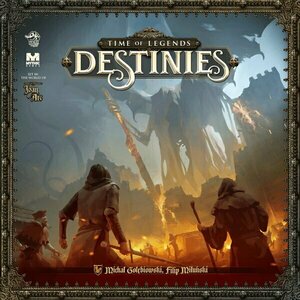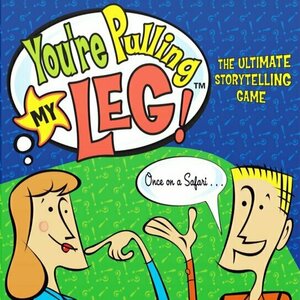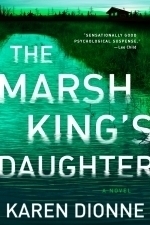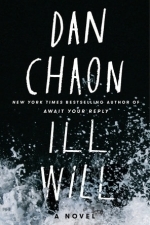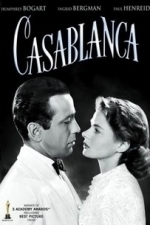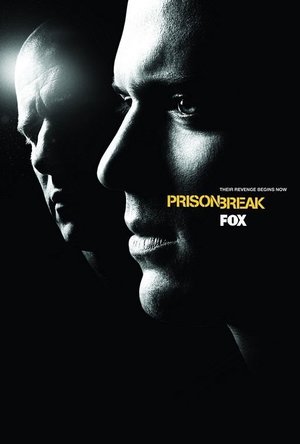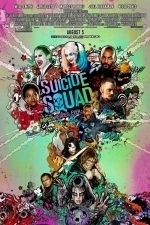Search
Search results
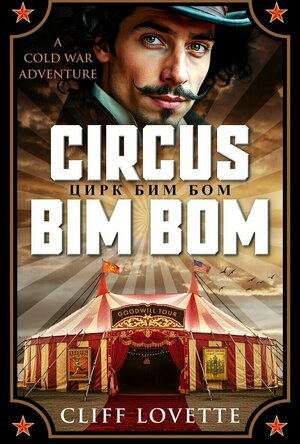
Circus Bim Bom: A Cold War Adventure
Book
1990. The Soviet Empire is unraveling. A circus has just arrived in America. When the first...
Historical Fiction Romantic Adventure Political Intrigue
Purple Phoenix Games (2266 KP) rated You're Pulling My Leg! in Tabletop Games
Aug 3, 2020
At the time I am writing this preview, the world is in the midst of a pandemic. That being said, the need for social distancing and quarantining has really affected the board gaming world. Without being able to have normal game nights, gamers must be creative in figuring out how to continue to play together, while still maintaining safe and healthy distances from one another. And one game that offers a solution is You’re Pulling My Leg!
Disclaimer: We were provided a copy of this book for the purposes of this preview. The pictures below show the final production copy you can expect to receive when ordering this game. Check out the publisher’s website to get your hands on this unique party game! -L
You’re Pulling My Leg! is a party game of bluffing and storytelling in which players are trying to be the first to earn 21 points. The rules are simple, the gameplay is straightforward, and it can even be played remotely!
To setup the game, every player needs a coin and a way to keep track of their score (paper/pencil, notes on a phone, etc.). Every player begins the game with 7 points. To start the game, choose a player to be the first Storyteller. The Storyteller selects a card from the book, reads the three questions on their chosen card, and chooses 1 to answer. The Storyteller then flips their coin – if HEADS, the answer must be a true story, but if TAILS, the answer must be false and untrue in essence. Only the Storyteller knows the result of the coin flip. The Storyteller proceeds to answer the question, telling a story dictated by their coin flip result.
After the Storyteller has told their response to the chosen question, the remaining players will vote (with points) on whether they believe the story was true or false. Players can vote with up to 3 points, and votes are revealed simultaneously. If you believe the story is TRUE, you vote with 1, 2, or 3 fingers pointing UP, and if you believe the story is FALSE, you vote with 1, 2, or 3 fingers pointing DOWN. After everyone has voted, the Storyteller reveals whether the story was true or false, and points are added/deducted accordingly. If a player voted correctly, they add the number of points with which they voted to their score. If they voted incorrectly, subtract the voted points from their score. The Storyteller can earn 1 point for each other player they have fooled, up to a maximum of 3 points per story. After tallying points, choose a new Storyteller and begin again – each player should have a chance to be the Storyteller once before repeating Storytellers. Play continues in this fashion until one player has scored 21 points, and is declared the winner!
At this point in my life, the thing I love about You’re Pulling My Leg! the most is that it can be played remotely. Everybody does not need to have an individual copy of the book to play via video chat or conference call. As long as one person has the book, your group can play! Instead of having each player read their own cards then, the owner of the book reads the cards aloud and the Storyteller chooses their question that way. The only supplies needed, apart from 1 copy of the book, are a coin and a way to track your score. Easy as pie. Another aspect of this game that I really enjoy is that it is pretty light-hearted in nature. Yes, there is an element of deception and bluffing, but it is all done in a light and quirky way. I especially enjoy this because I am a notoriously bad liar, and most bluffing games stress me out. But the ability to choose my question, and then weave a (hopefully) convincing story for my opponents takes some of that pressure off and allows me to really be creative and have fun.
That being said, one tricky thing about this game is that when coming up with a false story, if must be false in essence. You cannot tell a mostly true story with a few trivial details changed. People who have trouble with storytelling or improv-type scenarios might have some difficulty in coming up with an appropriate story for the different questions. Just something to be aware of – you have to be able to come up with a story on the fly, with no hints or help whatsoever. Another tricky, yet usually fun, aspect of this game is that some cards have a Wild feature which can immediately affect someone’s score. For example, one Wild feature might say “Player with the longest hair gains 3 points.” That goes into effect immediately once the card is selected, and can put a fun twist and some good-natured take-that into this storytelling game. The process of voting with points adds an element of strategy as well. How confident are you that someone’s story is TRUE? Are you willing to bet 3 points on it? It’s a balance of risk and reward, and that adds excitement to the game table.
Let me touch on components for a minute. This game is a book, where each page contains 3 cards. You can start at card #1 or select a random page and pick a card there, but there are 225 cards from which to choose! On every other page there is also a blank page titled “Game Highlights,” and this space is for you to write down any particularly hilarious or creative responses someone may have come up with in response to a card. It’s not a game requirement, but just an element of fun for future reminiscence. The quality of the book is pretty good, and I know it is sturdy enough to withstand lots of travel and play.
So all-in-all, I think that You’re Pulling My Leg is a great and light little game to get your creative juices flowing. If you need an ice-breaker for a game night, this would definitely be a great one to get to know your gaming comrades. Is it a game I will pull out at every game night? No. But it is a fun and light-hearted game that I can see myself pulling out with different gaming groups on several occasions. Whether a family reunion, office party, or friend Zoom call, this game is one that will entertain all involved. If you’re looking for something unique, fun, and relatively simple overall, give You’re Pulling My Leg! a shot. It might just open the door to storytelling based games for you!
Disclaimer: We were provided a copy of this book for the purposes of this preview. The pictures below show the final production copy you can expect to receive when ordering this game. Check out the publisher’s website to get your hands on this unique party game! -L
You’re Pulling My Leg! is a party game of bluffing and storytelling in which players are trying to be the first to earn 21 points. The rules are simple, the gameplay is straightforward, and it can even be played remotely!
To setup the game, every player needs a coin and a way to keep track of their score (paper/pencil, notes on a phone, etc.). Every player begins the game with 7 points. To start the game, choose a player to be the first Storyteller. The Storyteller selects a card from the book, reads the three questions on their chosen card, and chooses 1 to answer. The Storyteller then flips their coin – if HEADS, the answer must be a true story, but if TAILS, the answer must be false and untrue in essence. Only the Storyteller knows the result of the coin flip. The Storyteller proceeds to answer the question, telling a story dictated by their coin flip result.
After the Storyteller has told their response to the chosen question, the remaining players will vote (with points) on whether they believe the story was true or false. Players can vote with up to 3 points, and votes are revealed simultaneously. If you believe the story is TRUE, you vote with 1, 2, or 3 fingers pointing UP, and if you believe the story is FALSE, you vote with 1, 2, or 3 fingers pointing DOWN. After everyone has voted, the Storyteller reveals whether the story was true or false, and points are added/deducted accordingly. If a player voted correctly, they add the number of points with which they voted to their score. If they voted incorrectly, subtract the voted points from their score. The Storyteller can earn 1 point for each other player they have fooled, up to a maximum of 3 points per story. After tallying points, choose a new Storyteller and begin again – each player should have a chance to be the Storyteller once before repeating Storytellers. Play continues in this fashion until one player has scored 21 points, and is declared the winner!
At this point in my life, the thing I love about You’re Pulling My Leg! the most is that it can be played remotely. Everybody does not need to have an individual copy of the book to play via video chat or conference call. As long as one person has the book, your group can play! Instead of having each player read their own cards then, the owner of the book reads the cards aloud and the Storyteller chooses their question that way. The only supplies needed, apart from 1 copy of the book, are a coin and a way to track your score. Easy as pie. Another aspect of this game that I really enjoy is that it is pretty light-hearted in nature. Yes, there is an element of deception and bluffing, but it is all done in a light and quirky way. I especially enjoy this because I am a notoriously bad liar, and most bluffing games stress me out. But the ability to choose my question, and then weave a (hopefully) convincing story for my opponents takes some of that pressure off and allows me to really be creative and have fun.
That being said, one tricky thing about this game is that when coming up with a false story, if must be false in essence. You cannot tell a mostly true story with a few trivial details changed. People who have trouble with storytelling or improv-type scenarios might have some difficulty in coming up with an appropriate story for the different questions. Just something to be aware of – you have to be able to come up with a story on the fly, with no hints or help whatsoever. Another tricky, yet usually fun, aspect of this game is that some cards have a Wild feature which can immediately affect someone’s score. For example, one Wild feature might say “Player with the longest hair gains 3 points.” That goes into effect immediately once the card is selected, and can put a fun twist and some good-natured take-that into this storytelling game. The process of voting with points adds an element of strategy as well. How confident are you that someone’s story is TRUE? Are you willing to bet 3 points on it? It’s a balance of risk and reward, and that adds excitement to the game table.
Let me touch on components for a minute. This game is a book, where each page contains 3 cards. You can start at card #1 or select a random page and pick a card there, but there are 225 cards from which to choose! On every other page there is also a blank page titled “Game Highlights,” and this space is for you to write down any particularly hilarious or creative responses someone may have come up with in response to a card. It’s not a game requirement, but just an element of fun for future reminiscence. The quality of the book is pretty good, and I know it is sturdy enough to withstand lots of travel and play.
So all-in-all, I think that You’re Pulling My Leg is a great and light little game to get your creative juices flowing. If you need an ice-breaker for a game night, this would definitely be a great one to get to know your gaming comrades. Is it a game I will pull out at every game night? No. But it is a fun and light-hearted game that I can see myself pulling out with different gaming groups on several occasions. Whether a family reunion, office party, or friend Zoom call, this game is one that will entertain all involved. If you’re looking for something unique, fun, and relatively simple overall, give You’re Pulling My Leg! a shot. It might just open the door to storytelling based games for you!
tapestry100 (306 KP) rated The Marsh King's Daughter in Books
Aug 2, 2017
Originally reviewed on http://www.frommybookshelf.com
Helena Pelletier's life is more or less exactly what she wants: a husband and two daughters she loves deeply, a home business that keeps her busy during the days, her past a secret that she keeps hidden from everyone. Helena has worked hard for these things and she prides herself in her accomplishments, until the day her father escapes from prison and she immediately understands that her past is going to catch up to her, whether she wants it to or not. She also knows that the only way to keep her family safe and put her father back in prison is to find and deal with her father herself, since he was the one who trained her to live in the marshes of Michigan's Upper Peninsula, where he was keeping her mother captive after he had kidnapped her as a young girl.
With the main part of the story taking place over 24 hours "real time" with Helena tracking her father, the actual meat of the story all takes place in flashbacks as Helena thinks back on her childhood in the marshes of the UP and how her father treated her and her mother, who her father kidnapped as a young girl and made his wife. As she closes in on her father, she goes over various aspects of the only life she knew as a child, until her mother's past starts to catch up to her and Helena realizes that much of her life has been a lie perpetrated by both her father and mother and isn't exactly what they told her it was. As she grows older and finally starts to understand that even though this is the only life she's ever known, it may not be the life that either she or her mother deserves, and when she finally escapes her father's control she discovers that there is in fact an entire world she never knew about outside the marsh.
To be honest, the story of Helena's childhood is what really makes this book. Personally, I felt the entire portion of the book that is taking place in "real time" where Helena knows that she's the only one who can find her father, regardless of the large police force searching for him, and that she knows exactly where to look for him in the entire area surrounding her home and the prison he escaped from all seemed far to convenient, and only plausible in order to make this portion of the story move forward. Helena's memories of her childhood and the psychological aspects of being a child who has been raised in an extreme situation, but one that seems normal to her only because it's all that she knows, was fascinating. Her recollections of her father teaching her how to hunt and live in the wilderness, and her childhood idolization of him in this respect juxtaposed against her later feeling towards him as she starts to mature and gain some sense of adolescent independence, and her eventual discovery that her whole life has been based on lies and the kidnapping of her mother, was remarkable storytelling, and Karen Dionne delivers this entire sequence of events deftly and with sharp storytelling. While the "real time" story requires quite a hefty amount of suspension of disbelief, the background story well makes up for this and creates a truly mesmerizing and atmospheric story that will keep you up late into the night, turning the page for more.
Helena Pelletier's life is more or less exactly what she wants: a husband and two daughters she loves deeply, a home business that keeps her busy during the days, her past a secret that she keeps hidden from everyone. Helena has worked hard for these things and she prides herself in her accomplishments, until the day her father escapes from prison and she immediately understands that her past is going to catch up to her, whether she wants it to or not. She also knows that the only way to keep her family safe and put her father back in prison is to find and deal with her father herself, since he was the one who trained her to live in the marshes of Michigan's Upper Peninsula, where he was keeping her mother captive after he had kidnapped her as a young girl.
With the main part of the story taking place over 24 hours "real time" with Helena tracking her father, the actual meat of the story all takes place in flashbacks as Helena thinks back on her childhood in the marshes of the UP and how her father treated her and her mother, who her father kidnapped as a young girl and made his wife. As she closes in on her father, she goes over various aspects of the only life she knew as a child, until her mother's past starts to catch up to her and Helena realizes that much of her life has been a lie perpetrated by both her father and mother and isn't exactly what they told her it was. As she grows older and finally starts to understand that even though this is the only life she's ever known, it may not be the life that either she or her mother deserves, and when she finally escapes her father's control she discovers that there is in fact an entire world she never knew about outside the marsh.
To be honest, the story of Helena's childhood is what really makes this book. Personally, I felt the entire portion of the book that is taking place in "real time" where Helena knows that she's the only one who can find her father, regardless of the large police force searching for him, and that she knows exactly where to look for him in the entire area surrounding her home and the prison he escaped from all seemed far to convenient, and only plausible in order to make this portion of the story move forward. Helena's memories of her childhood and the psychological aspects of being a child who has been raised in an extreme situation, but one that seems normal to her only because it's all that she knows, was fascinating. Her recollections of her father teaching her how to hunt and live in the wilderness, and her childhood idolization of him in this respect juxtaposed against her later feeling towards him as she starts to mature and gain some sense of adolescent independence, and her eventual discovery that her whole life has been based on lies and the kidnapping of her mother, was remarkable storytelling, and Karen Dionne delivers this entire sequence of events deftly and with sharp storytelling. While the "real time" story requires quite a hefty amount of suspension of disbelief, the background story well makes up for this and creates a truly mesmerizing and atmospheric story that will keep you up late into the night, turning the page for more.
Forced premise (2 more)
Storytelling & writing that drives you insane
Not interesting
You'll probably love it or hate it
Dustin Tillman is a psychologist in Ohio; he's married with two sons and rarely even thinks about the horrific incident of his childhood, when his adopted brother, Rusty, murdered Dustin's parents and his aunt and uncle. Dustin was just a child then, and his brother was arrested largely on the testimony of Dustin and his cousin Kate and the 1980s' fears over satanism. But now Dustin learns that Rusty is being released from prison; his appeal has been granted, and his verdict overturned based on DNA evidence. Meanwhile, Dustin is struggling with one of his patients, Aqil, a former police officer who believes there is a link among a group of drunken college boys who have died by drowning. As more and more things start going wrong in Dustin's life, he gets drawn into Aqil's paranoia-- and he threatens to bring down his family with him.
This book had an interesting premise: linking two sets of crimes in the past and present, but I felt like that premise was a little forced/falsified, and I never got into the book, or the characters. As a reader, you'll probably find the way it's written either brilliant or incredibly irritating, and I fell squarely into the irritating camp. There are very abrupt chapter switches between the present and the past that are quite annoying, making it difficult to tell exactly where you are in time. The changes in point of view aren't as bad, allowing you to hear from Dustin, his son, and others, but it still gets confusing quickly. (Sidebar: doesn't anyone just tell a linear story from one person's point of view anymore?)
Even more, the story is written quite like the characters think--which is fine in theory--for instance, this includes Dustin's tendency to just stop mid-sentence, something his family teases him about. After a bit you get somewhat used to the random sentences that end mid-thought, or the weird white spaces, but it's still strange. Other parts are the story are split into two or three parts on a page and told almost in parallel, causing you to flip back and forth to read each set. I never was quite sure of the point of that. Yes, people in the novel are going crazy and on drugs. I could get that concept and not have to flip back and forth constantly to read chunks of the story. It's one of those storytelling devices that, to me, could be amazing, but just winds up driving you slightly insane.
This novel is also very dark. Again, that's fine. I just finished The Roanoke Girls, which was incredibly dark, and loved it. But this one: I just didn't find it that interesting. I found myself finishing it more out of a vague curiosity and duty than anything else. I figured out one of the main plot points pretty on and wasn't engaged with any of the characters. Then, after all of this, the ending is awful and vague, and there's no resolution, and I found myself just throwing the whole thing down in disgust. Definitely not one of my favorites. I can see the potential for others, but it wasn't for me.
I received a copy of this novel from the publisher and Netgalley (thank you) in return for an unbiased review.
This book had an interesting premise: linking two sets of crimes in the past and present, but I felt like that premise was a little forced/falsified, and I never got into the book, or the characters. As a reader, you'll probably find the way it's written either brilliant or incredibly irritating, and I fell squarely into the irritating camp. There are very abrupt chapter switches between the present and the past that are quite annoying, making it difficult to tell exactly where you are in time. The changes in point of view aren't as bad, allowing you to hear from Dustin, his son, and others, but it still gets confusing quickly. (Sidebar: doesn't anyone just tell a linear story from one person's point of view anymore?)
Even more, the story is written quite like the characters think--which is fine in theory--for instance, this includes Dustin's tendency to just stop mid-sentence, something his family teases him about. After a bit you get somewhat used to the random sentences that end mid-thought, or the weird white spaces, but it's still strange. Other parts are the story are split into two or three parts on a page and told almost in parallel, causing you to flip back and forth to read each set. I never was quite sure of the point of that. Yes, people in the novel are going crazy and on drugs. I could get that concept and not have to flip back and forth constantly to read chunks of the story. It's one of those storytelling devices that, to me, could be amazing, but just winds up driving you slightly insane.
This novel is also very dark. Again, that's fine. I just finished The Roanoke Girls, which was incredibly dark, and loved it. But this one: I just didn't find it that interesting. I found myself finishing it more out of a vague curiosity and duty than anything else. I figured out one of the main plot points pretty on and wasn't engaged with any of the characters. Then, after all of this, the ending is awful and vague, and there's no resolution, and I found myself just throwing the whole thing down in disgust. Definitely not one of my favorites. I can see the potential for others, but it wasn't for me.
I received a copy of this novel from the publisher and Netgalley (thank you) in return for an unbiased review.

Curious George Goes Camping by i Read With
Book and Education
App
**A Children eBook Awards Silver Winner - Best Language Development and Early Childhood App** **A...
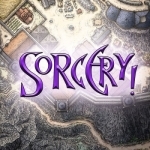
Sorcery! 4
Games and Book
App
An epic adventure through a cursed citadel of monsters, traps and magic. Begin your journey here...
DaveySmithy (107 KP) rated Casablanca (1942) in Movies
Dec 3, 2024
A Timeless Classic: Casablanca - A 10/10 Masterpiece
Few films manage to withstand the test of time quite like Casablanca. Released in 1942, this cinematic gem not only defines its era but also transcends it, continuing to captivate audiences decades later. Directed by Michael Curtiz and featuring unforgettable performances by Humphrey Bogart and Ingrid Bergman, Casablanca is a rare film that combines stellar storytelling, iconic performances, and a profound emotional core into an unparalleled movie experience.
What makes Casablanca truly extraordinary is its perfect balance of intimate romance and global stakes. Set during World War II in the Moroccan city of Casablanca, the story revolves around Rick Blaine (Bogart), a cynical American expatriate who runs a nightclub, and Ilsa Lund (Bergman), the woman who once broke his heart. Their unexpected reunion is fraught with unresolved emotions and set against the backdrop of political intrigue, resistance efforts, and the shadow of Nazi oppression. It’s not just a love story—it’s a story of sacrifice, morality, and the search for meaning in chaotic times.
Humphrey Bogart, known for his tough-guy persona, delivers a nuanced and deeply human performance as Rick. His dry wit, vulnerability, and quiet heroism make Rick one of cinema’s most iconic characters. Bogart effortlessly conveys the tension between Rick’s outward indifference and his inner turmoil, making his journey from apathy to sacrifice profoundly moving. Opposite him, Ingrid Bergman is luminous as Ilsa. Her portrayal is layered with strength, grace, and a quiet sadness that makes her character unforgettable. The chemistry between Bogart and Bergman is electric, their unspoken longing resonating in every glance and line of dialogue.
The supporting cast is equally brilliant. Claude Rains as the charmingly corrupt Captain Renault steals nearly every scene he’s in with his biting humor and moral ambiguity. Paul Henreid’s portrayal of Victor Laszlo, the noble resistance leader, adds gravitas to the story, while Sydney Greenstreet and Peter Lorre deliver memorable turns as colorful figures in Casablanca’s shadowy underworld. Every character, no matter how small their role, feels fully realized and essential to the tapestry of the story.
What elevates Casablanca to legendary status, however, is its script. Few films boast dialogue as sharp and iconic, with lines like “Here’s looking at you, kid,” and “We’ll always have Paris” becoming ingrained in pop culture. The screenplay, penned by Julius and Philip Epstein and Howard Koch, is a masterclass in storytelling, seamlessly blending romance, suspense, and humor. Each scene serves a purpose, driving the plot forward while deepening the emotional stakes.
Max Steiner’s score is another standout element, with the recurring use of “As Time Goes By” becoming as timeless as the film itself. The music weaves through the narrative, underscoring moments of joy, heartbreak, and tension with haunting beauty.
But perhaps the most remarkable aspect of Casablanca is its ability to resonate on multiple levels. It’s a sweeping romance, a gripping war drama, and a meditation on sacrifice and duty, all rolled into one. Its themes remain universal, its characters relatable, and its emotional impact undiminished by time.
In a world filled with good movies and great movies, Casablanca stands apart as a perfect one. It’s not just a film—it’s an experience, a masterpiece that speaks to the heart and soul. For that, it earns a well-deserved 10/10.
What makes Casablanca truly extraordinary is its perfect balance of intimate romance and global stakes. Set during World War II in the Moroccan city of Casablanca, the story revolves around Rick Blaine (Bogart), a cynical American expatriate who runs a nightclub, and Ilsa Lund (Bergman), the woman who once broke his heart. Their unexpected reunion is fraught with unresolved emotions and set against the backdrop of political intrigue, resistance efforts, and the shadow of Nazi oppression. It’s not just a love story—it’s a story of sacrifice, morality, and the search for meaning in chaotic times.
Humphrey Bogart, known for his tough-guy persona, delivers a nuanced and deeply human performance as Rick. His dry wit, vulnerability, and quiet heroism make Rick one of cinema’s most iconic characters. Bogart effortlessly conveys the tension between Rick’s outward indifference and his inner turmoil, making his journey from apathy to sacrifice profoundly moving. Opposite him, Ingrid Bergman is luminous as Ilsa. Her portrayal is layered with strength, grace, and a quiet sadness that makes her character unforgettable. The chemistry between Bogart and Bergman is electric, their unspoken longing resonating in every glance and line of dialogue.
The supporting cast is equally brilliant. Claude Rains as the charmingly corrupt Captain Renault steals nearly every scene he’s in with his biting humor and moral ambiguity. Paul Henreid’s portrayal of Victor Laszlo, the noble resistance leader, adds gravitas to the story, while Sydney Greenstreet and Peter Lorre deliver memorable turns as colorful figures in Casablanca’s shadowy underworld. Every character, no matter how small their role, feels fully realized and essential to the tapestry of the story.
What elevates Casablanca to legendary status, however, is its script. Few films boast dialogue as sharp and iconic, with lines like “Here’s looking at you, kid,” and “We’ll always have Paris” becoming ingrained in pop culture. The screenplay, penned by Julius and Philip Epstein and Howard Koch, is a masterclass in storytelling, seamlessly blending romance, suspense, and humor. Each scene serves a purpose, driving the plot forward while deepening the emotional stakes.
Max Steiner’s score is another standout element, with the recurring use of “As Time Goes By” becoming as timeless as the film itself. The music weaves through the narrative, underscoring moments of joy, heartbreak, and tension with haunting beauty.
But perhaps the most remarkable aspect of Casablanca is its ability to resonate on multiple levels. It’s a sweeping romance, a gripping war drama, and a meditation on sacrifice and duty, all rolled into one. Its themes remain universal, its characters relatable, and its emotional impact undiminished by time.
In a world filled with good movies and great movies, Casablanca stands apart as a perfect one. It’s not just a film—it’s an experience, a masterpiece that speaks to the heart and soul. For that, it earns a well-deserved 10/10.
Bird (1704 KP) rated Prison Break in TV
Nov 29, 2024
A Riveting Ride with a Few Bumps:
Prison Break is a show that deserves its reputation as one of the most exciting and original dramas of its time. While not without its flaws, the series delivers a thrilling mix of suspense, clever plotting, and character-driven storytelling that keeps you invested throughout its run. With an intriguing premise and a solid cast, it’s easy to see why Prison Break has garnered such a devoted fanbase.
The standout feature of Prison Break is undoubtedly its core premise. The idea of a structural engineer, Michael Scofield (played by Wentworth Miller), intentionally landing himself in prison to break out his falsely accused brother, Lincoln Burrows (Dominic Purcell), is fascinating. The execution of Michael’s plan, complete with hidden clues in his tattooed body map, is both ingenious and fun to watch unfold. The first season, in particular, excels at building tension as Michael carefully navigates the treacherous world of Fox River Penitentiary, laying the groundwork for the escape. It’s a slow burn at times, but the payoff is worth it.
The cast is another highlight. Wentworth Miller’s calm and calculated performance as Michael is captivating, and Dominic Purcell brings a solid, if sometimes overly stoic, presence to Lincoln. Robert Knepper steals the show as Theodore "T-Bag" Bagwell, delivering a performance that’s equal parts chilling and oddly charismatic. Supporting characters like Sucre (Amaury Nolasco) and Sara Tancredi (Sarah Wayne Callies) add warmth and heart to balance the often dark and gritty tone of the series.
However, the show isn’t without its flaws. While the first season is nearly airtight in its storytelling, later seasons can feel uneven. The second season’s shift to a manhunt format is exhilarating but occasionally stretches believability, with some plot twists feeling more like conveniences than organic developments. As the series progresses, the introduction of larger conspiracies and shadowy organisations adds scale but also detracts from the grounded tension that made the first season so compelling. By the time you reach the third and fourth seasons, the narrative occasionally veers into melodrama and over-the-top scenarios, which may pull some viewers out of the experience.
The pacing can also be hit or miss. While some episodes are packed with heart-pounding tension, others feel like filler, particularly in the later seasons. The show sometimes leans too heavily on cliffhangers, which can feel manipulative rather than earned. Additionally, while the cast is strong overall, some characters, like Lincoln, can come across as one-dimensional at times, and a few storylines feel underdeveloped or rushed.
That said, Prison Break is undeniably entertaining. Its gritty atmosphere, clever plotting, and high-stakes drama make it a standout among action-thrillers. The relationships between characters, particularly Michael and Lincoln’s unshakable brotherly bond, give the series emotional weight. Even with its flaws, the show’s twists and turns keep you engaged, and there’s a palpable sense of satisfaction when long-brewing plans come to fruition.
In summary, Prison Break is a fantastic watch, especially for fans of crime dramas and action-packed thrillers, though it occasionally falters under the weight of its ambition. It’s an 8/10 for me—hugely enjoyable, if not always perfect. While it may not stick the landing as well as it starts, the journey is more than worth taking.
The standout feature of Prison Break is undoubtedly its core premise. The idea of a structural engineer, Michael Scofield (played by Wentworth Miller), intentionally landing himself in prison to break out his falsely accused brother, Lincoln Burrows (Dominic Purcell), is fascinating. The execution of Michael’s plan, complete with hidden clues in his tattooed body map, is both ingenious and fun to watch unfold. The first season, in particular, excels at building tension as Michael carefully navigates the treacherous world of Fox River Penitentiary, laying the groundwork for the escape. It’s a slow burn at times, but the payoff is worth it.
The cast is another highlight. Wentworth Miller’s calm and calculated performance as Michael is captivating, and Dominic Purcell brings a solid, if sometimes overly stoic, presence to Lincoln. Robert Knepper steals the show as Theodore "T-Bag" Bagwell, delivering a performance that’s equal parts chilling and oddly charismatic. Supporting characters like Sucre (Amaury Nolasco) and Sara Tancredi (Sarah Wayne Callies) add warmth and heart to balance the often dark and gritty tone of the series.
However, the show isn’t without its flaws. While the first season is nearly airtight in its storytelling, later seasons can feel uneven. The second season’s shift to a manhunt format is exhilarating but occasionally stretches believability, with some plot twists feeling more like conveniences than organic developments. As the series progresses, the introduction of larger conspiracies and shadowy organisations adds scale but also detracts from the grounded tension that made the first season so compelling. By the time you reach the third and fourth seasons, the narrative occasionally veers into melodrama and over-the-top scenarios, which may pull some viewers out of the experience.
The pacing can also be hit or miss. While some episodes are packed with heart-pounding tension, others feel like filler, particularly in the later seasons. The show sometimes leans too heavily on cliffhangers, which can feel manipulative rather than earned. Additionally, while the cast is strong overall, some characters, like Lincoln, can come across as one-dimensional at times, and a few storylines feel underdeveloped or rushed.
That said, Prison Break is undeniably entertaining. Its gritty atmosphere, clever plotting, and high-stakes drama make it a standout among action-thrillers. The relationships between characters, particularly Michael and Lincoln’s unshakable brotherly bond, give the series emotional weight. Even with its flaws, the show’s twists and turns keep you engaged, and there’s a palpable sense of satisfaction when long-brewing plans come to fruition.
In summary, Prison Break is a fantastic watch, especially for fans of crime dramas and action-packed thrillers, though it occasionally falters under the weight of its ambition. It’s an 8/10 for me—hugely enjoyable, if not always perfect. While it may not stick the landing as well as it starts, the journey is more than worth taking.
Nick Friesen (96 KP) rated Suicide Squad (2016) in Movies
Jul 18, 2017
Margot Robbie's Harley Quinn (2 more)
Will Smith is Actually a Great Deadshot
The Two Seconds Batman is Involved
Weak Story (3 more)
Terrible Villain
PG-13 was an Underwhelming Choice
Most of the Characters are Forgettable
A Half-Assed Suicide (Squad) Attempt
After the success of Deadpool six months prior, an R-Rated anti-hero action movie that pushed the envelope, Suicide Squad just felt weak. The movie about DC's most famous rogues should have took a chance on an R rating as well. There's just something not quite right with these characters participating in a (mostly) family friendly romp. They fight black, faceless zombies, sort-of curse, and sometimes make lame jokes along the way. Along with that, there's too many characters crammed into the movie without any previous introduction or characterization. At the very least, Harley and the Joker should have been in an entire Batman movie before the Suicide Squad movie happened, if not Deadshot as well. Instead we get a miniature helping of Batman versus these foes in the early minutes of the movie, and then this ragtag group of baddies is thrown together to fight an evil bigger than themselves without much in the way of good storytelling. It's sad, really, because these characters are compelling in their own right. If DC really wants to have a cohesive movie universe, they need to slow down and build the movie versions of these characters before slapping them all together and expecting people to care. That, or at least give these awesome anti-heroes an equally awesome antagonist to square off with; the Enchantress is just lame.
